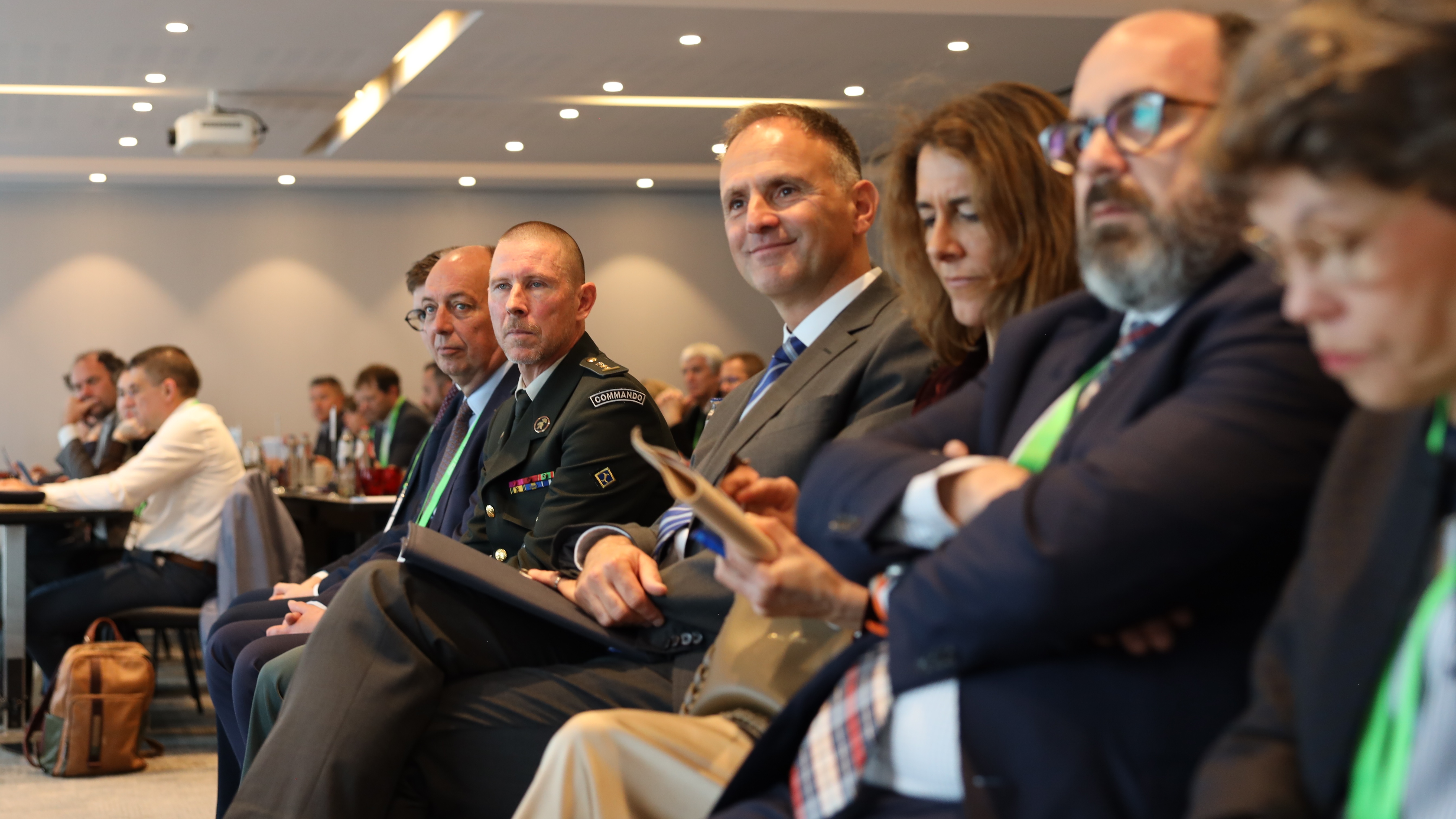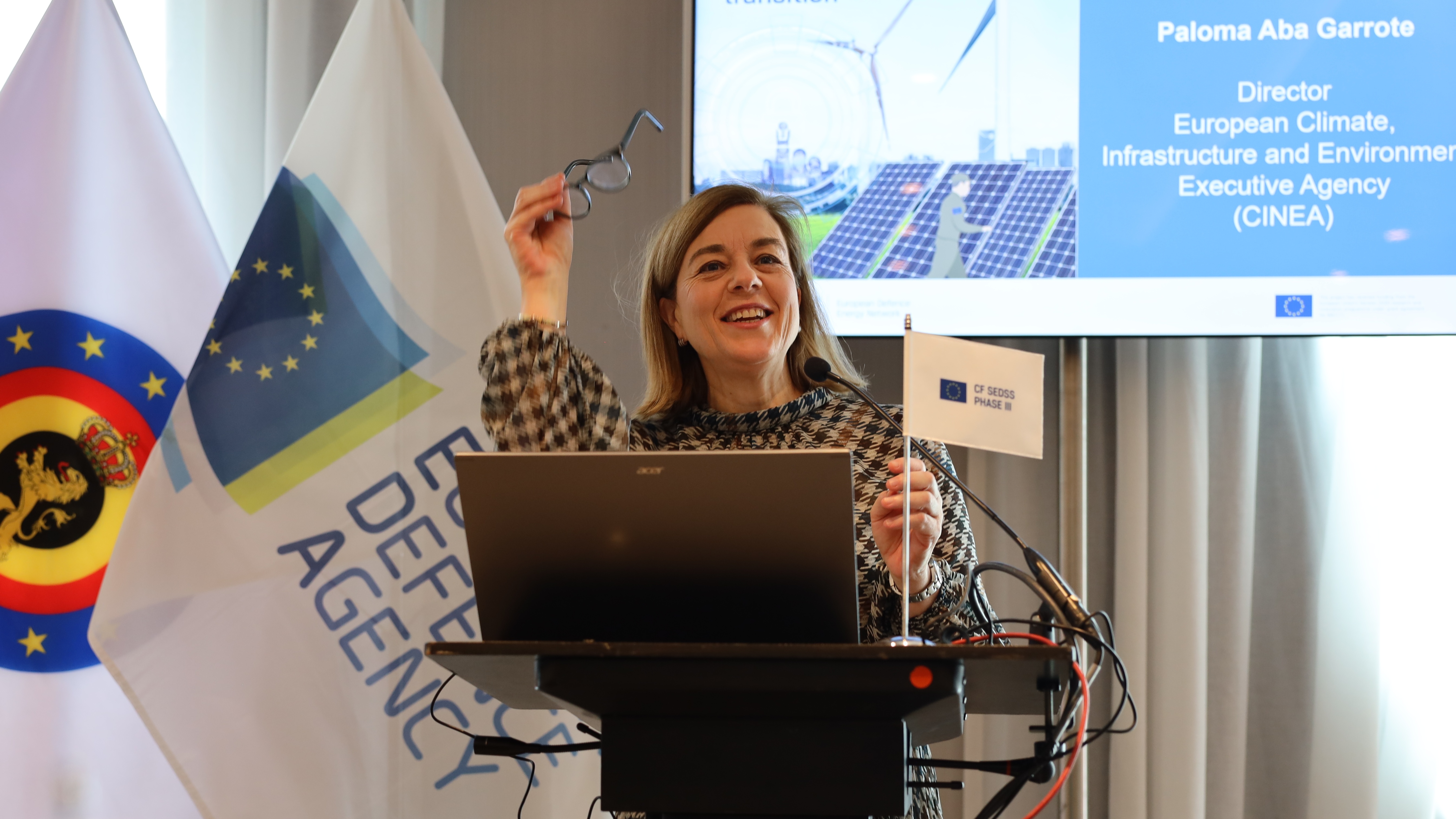The Consultation Forum for Sustainable Energy in the Defence and Security Sector (CF SEDSS), has marked the end of its third phase, running from 2019 to 2024, playing its part in the European Union’s Green Deal to reach net zero greenhouse gas emissions by 2050.
With initiatives to improve energy efficiency in the military, as well as pilot projects to optimise energy use in buildings and efforts to electrify transport within defence facilities, Phase III generated over 30 project ideas and 15 research studies. Initiatives also included integrating hydrogen fuel technology in military vehicles and promote military behavioural change among military personnel.
The European Defence Agency (EDA) and the Commission’s Directorate-General for Energy (DG ENER) organised the CF SEDSS III Dissemination Conference on 25 April 2024 under the auspices of the Belgian Presidency of the Council of the European Union and hosted by the Ministry of Defence of Belgium.
The CF SEDSS is a Commission-funded initiative managed by the EDA. It is Europe’s largest defence energy community, reinforcing the defence sector's involvement in the energy transition. It will now move to Phase IV, running until 2028. The forum focuses on four interrelated areas: energy efficiency and buildings performance; renewable energy sources; protection of defence-related critical energy infrastructure; and policy, research and technology, and funding for defence energy-related projects.
“It is more crucial than ever to fully embrace a spirit of sustainability in our defence policies. Climate change also highlights the need to diversify our energy sources,” Belgium’s Minister of Defence Ludivine Dedonder told the conference. “The Member States of the European Union, through the Green Deal, have committed to achieving climate neutrality by 2050. Defence can play a crucial role by integrating the fight against climate change into its operations and by developing skills to meet the new environmental challenges.”
EDA Deputy Chief Executive André Denk said that the next phase of the Consultation Forum would be crucial. “The EU’s goal to become climate neutral by 2050 cannot be achieved without the engagement of the defence sector – defence may be responsible for up to 5.5% of the world’s total CO2 emissions. More energy sustainability in defence means also less costs, less reliance on fossil fuels, and increased resilience.”

Paloma Aba Garrote, Director, European Climate, Infrastructure and Environment Executive Agency (CINEA), said that: “Europe’s defence and security sector is crucial to achieving the EU Green Deal targets of energy efficiency, renewables deployment and decarbonisation of the economy.”

In total, seven plenary conferences were organised during Phase III, including two onsite exhibitions, as well as workshops and ad-hoc meetings. EDA organised the first CF SEDSS table-top exercise to assess and mitigate vulnerabilities in critical energy infrastructure related to defence in the face of hybrid threats.
These efforts have collectively supported EU goals in energy and climate, highlighted by the development of the Symbiosis project, which will identify and address barriers for offshore renewable energy developments in areas used or reserved for present and future military activities and purposes.
The Forum's contributions are acknowledged in high-level EU documents such as the Progress Report of the EU Climate Change and Defence Roadmap, the Action Plan on Military Mobility and the EU Joint Communication on Climate Change.
To read more about the CF SEDSS